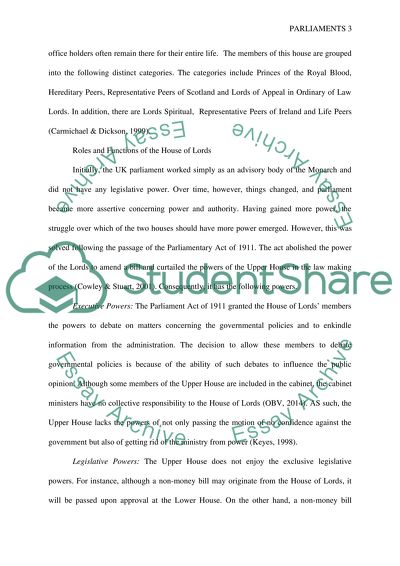Cite this document
(“The European Parliament and the UK Parliament are both legislatures, Assignment”, n.d.)
The European Parliament and the UK Parliament are both legislatures, Assignment. Retrieved from https://studentshare.org/social-science/1673308-the-european-parliament-and-the-uk-parliament-are-both-legislatures-but-are-not-directly-comparable-critically-discuss-the-role-and-function-of-the-european-and-uk-parliaments-paying-particular-attention-to-their-composition-structure-powers-and-the
The European Parliament and the UK Parliament are both legislatures, Assignment. Retrieved from https://studentshare.org/social-science/1673308-the-european-parliament-and-the-uk-parliament-are-both-legislatures-but-are-not-directly-comparable-critically-discuss-the-role-and-function-of-the-european-and-uk-parliaments-paying-particular-attention-to-their-composition-structure-powers-and-the
(The European Parliament and the UK Parliament Are Both Legislatures, Assignment)
The European Parliament and the UK Parliament Are Both Legislatures, Assignment. https://studentshare.org/social-science/1673308-the-european-parliament-and-the-uk-parliament-are-both-legislatures-but-are-not-directly-comparable-critically-discuss-the-role-and-function-of-the-european-and-uk-parliaments-paying-particular-attention-to-their-composition-structure-powers-and-the.
The European Parliament and the UK Parliament Are Both Legislatures, Assignment. https://studentshare.org/social-science/1673308-the-european-parliament-and-the-uk-parliament-are-both-legislatures-but-are-not-directly-comparable-critically-discuss-the-role-and-function-of-the-european-and-uk-parliaments-paying-particular-attention-to-their-composition-structure-powers-and-the.
“The European Parliament and the UK Parliament Are Both Legislatures, Assignment”, n.d. https://studentshare.org/social-science/1673308-the-european-parliament-and-the-uk-parliament-are-both-legislatures-but-are-not-directly-comparable-critically-discuss-the-role-and-function-of-the-european-and-uk-parliaments-paying-particular-attention-to-their-composition-structure-powers-and-the.


